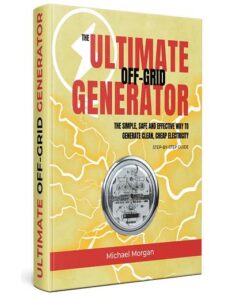A Portable Solar Energy System is a compact, mobile power solution that harnesses solar energy to generate electricity for various applications, from charging small devices to powering essential appliances. These systems are ideal for outdoor enthusiasts, emergency backup power, and off-grid living.
General Description
A Portable Solar Energy System typically includes:
- Solar Panels – Convert sunlight into electrical energy.
- Battery Storage – Stores energy for use when sunlight is unavailable.
- Charge Controller – Regulates power flow and prevents overcharging.
- Inverter (for AC power) – Converts DC electricity from the battery into AC power for household appliances.
These systems vary in size, capacity, and functionality. Some are small, foldable panels with USB outputs, while others are more powerful units capable of running refrigerators, medical devices, or entire off-grid cabins.
Pros and Cons
Pros:
✔ Renewable Energy Source – Reduces dependence on fossil fuels and grid electricity.
✔ Portable and Lightweight – Designed for mobility, making it great for camping, RVs, and outdoor use.
✔ Cost-Effective – Eliminates ongoing fuel costs associated with gas-powered generators.
✔ Low Maintenance – Requires minimal upkeep with no moving parts.
✔ Eco-Friendly – Produces clean energy without emissions.
Cons:
✖ Weather-Dependent – Limited efficiency on cloudy days or in low-light conditions.
✖ Higher Initial Cost – Can be expensive upfront, especially high-capacity models.
✖ Limited Power Output – Smaller systems may not support high-energy appliances for long durations.
✖ Slower Charging Times – Compared to traditional grid electricity, solar charging can take longer.
Frequently Asked Questions (FAQs)
1. How long does it take to charge a Portable Solar Energy System?
Charging time varies depending on sunlight conditions, panel wattage, and battery capacity. Small systems may take 4–8 hours, while larger setups may require a full day of sunlight.
2. Can I use a Portable Solar Energy System indoors?
Solar panels need direct sunlight to generate power, but the stored battery energy can be used indoors for powering devices and appliances.
3. What devices can a Portable Solar Energy System run?
Smaller systems can charge phones, laptops, and LED lights, while larger units can power mini-fridges, TVs, and even medical equipment.
4. How long will the stored power last?
Battery duration depends on capacity (measured in watt-hours) and the power consumption of connected devices. A 500Wh system can run a laptop for 10 hours or a mini-fridge for 5 hours.
5. Do these systems require maintenance?
Minimal maintenance is needed—clean the solar panels regularly and ensure battery connections remain secure.
Conclusion
A Portable Solar Energy System is a valuable investment for anyone seeking a reliable, eco-friendly power source. Whether used for outdoor adventures, emergency preparedness, or off-grid applications, these systems provide clean energy with minimal maintenance. However, their efficiency depends on sunlight availability, so it’s essential to choose the right capacity based on your power needs.
Be the first to review “Portable Solar Energy System!” Cancel reply
Related products
Alternative Energy
Alternative Energy
Alternative Energy
Alternative Energy
Alternative Energy
Alternative Energy
Alternative Energy
Alternative Energy












Reviews
There are no reviews yet.